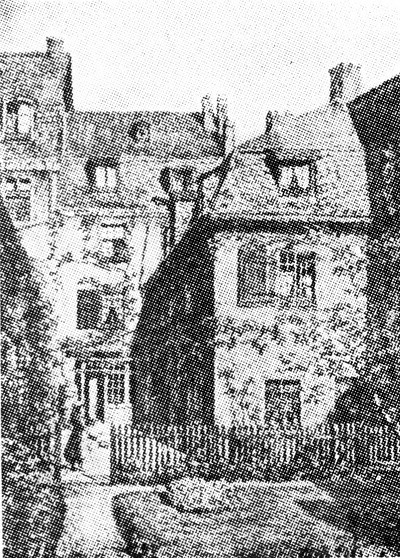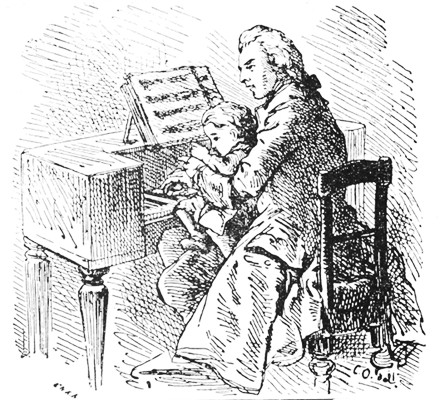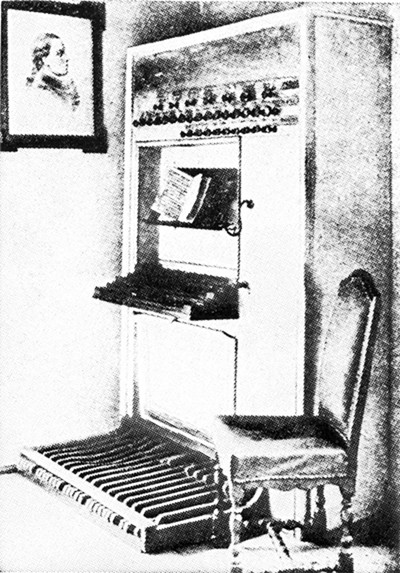
Welcome to our month of Beethoven. This month's little biography hails from 1917, another gem by Thomas Tapper, called The Story of a Little Boy who was Forced to Practice.
Ludwig van Beethoven was born in the lovely town of Bonn, on the River Rhine, December 16, 1770.
The house in which he spent his boyhood is still standing. We see in the picture what a pretty, homelike place the house and the yard must have been. It is now the Beethoven House, or Museum, filled with mementos of the great composer. There you may see music pages written by him, letters, medals, instruments; even his ear trumpet is there.

THE BEETHOVEN HOUSE
Beethoven's father was a singer at the Chapel of the Elector. He was not a good father, for he did not care to work even enough to make his family comfortable. But the mother loved her boy with all her heart, as we shall see.

BEETHOVEN'S FATHER
Ludwig was only four years old when he began to study music. Like children of to-day he shed many a tear over the first lessons. In the beginning his father taught him piano and violin, and forced him to practice. At school he learned, just as we do to-day, reading, writing, arithmetic, and later on, Latin.

THE FIRST LESSON
Never again after thirteen, did Ludwig go to school for he had to work and earn his living.
Do you wonder what kind of a boy he was? We are told that he was shy and quiet. He talked little and took no interest in the games that his boy and girl companions played.
While Ludwig was in school he played at a concert for the first time. He was then eight years old. Two years later he had composed quite a number of pieces. One of these was printed. It was called Variations on Dressler's March. On the title page of this piece it said:—
VARIATIONS ON DRESSLER'S MARCH
Composed by a Young Amateur
LOUIS VAN BEETHOVEN
Aged ten years. 1780
Then, the little boy studied with a teacher named Christian Gottlob Neefe, who took real interest in him. Neefe did not, as was said of Beethoven's father, punish the little boy severely to keep him at his practice, hour after hour. Often when Neefe had to travel Ludwig took his teacher's place as organist at the Court. Then with the organ lessons there were other lessons in Harmony. So rapidly did the boy improve that his teacher said one day "If he goes on as he has begun, he will some day be a second Mozart."
Our young hero of thirteen was surely busy every hour of the day. He played in an orchestra, as accompanist. He gave lessons, played the organ in church, studied the violin, and kept up his work in composition. He always kept a note-book for musical ideas.
Most every child in these days has more and better opportunities than had the great Beethoven when he was a child. Here is a picture of the funny old organ in the Minorite Church of Bonn upon which Beethoven played when he was a little boy.

Look at the funny stops at the top and compare it with the best organ in your own town. This is little better than a toy beside our fine organs of to-day,—yet it was the best that Beethoven had to practice upon. When Neefe said that he would probably be a second Mozart the words filled Ludwig with a great desire. On his sixteenth birthday what do you think happened? Why, he set out from Bonn to Vienna, where Mozart lived.
Coming tomorrow in Part 2:
No comments:
Post a Comment